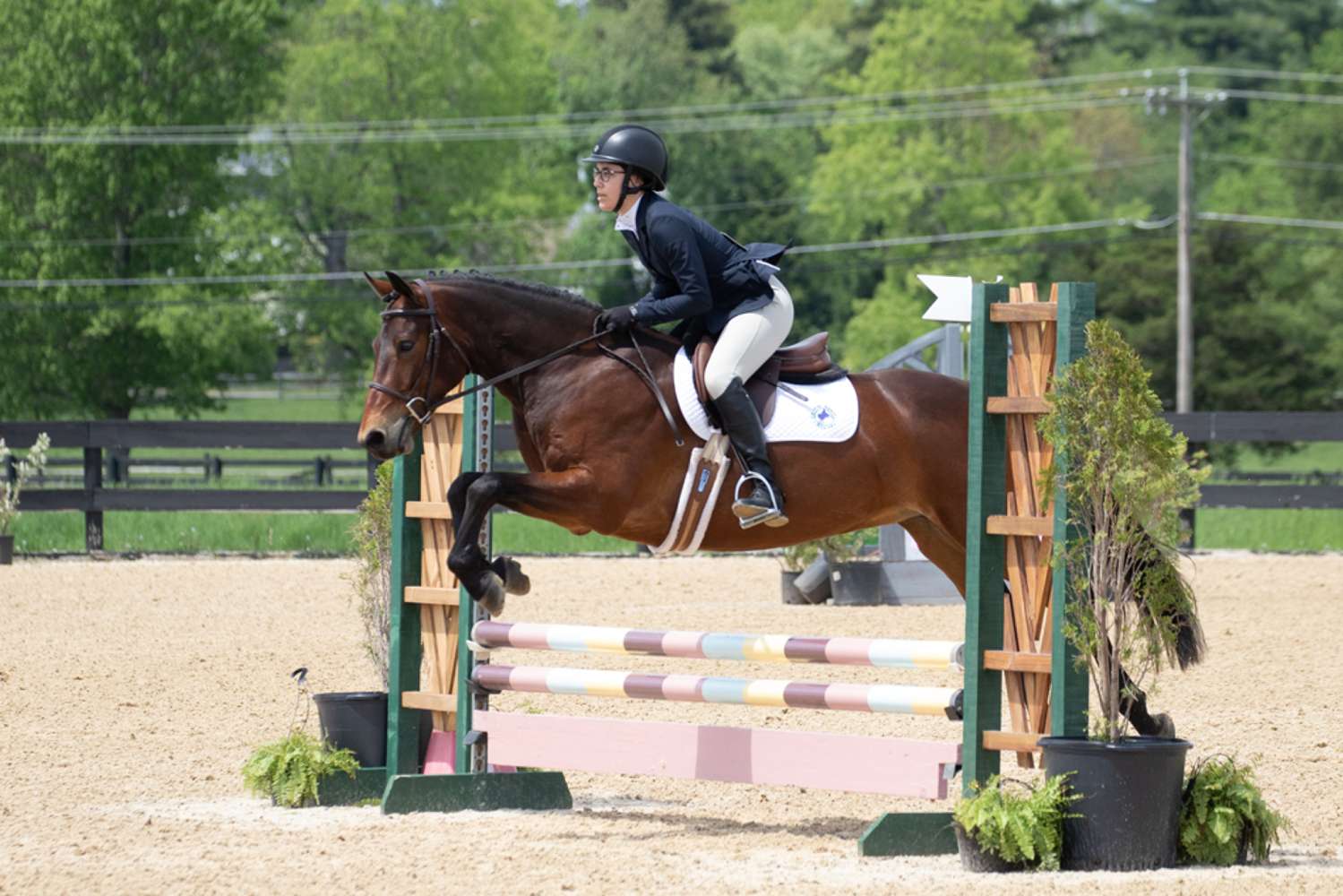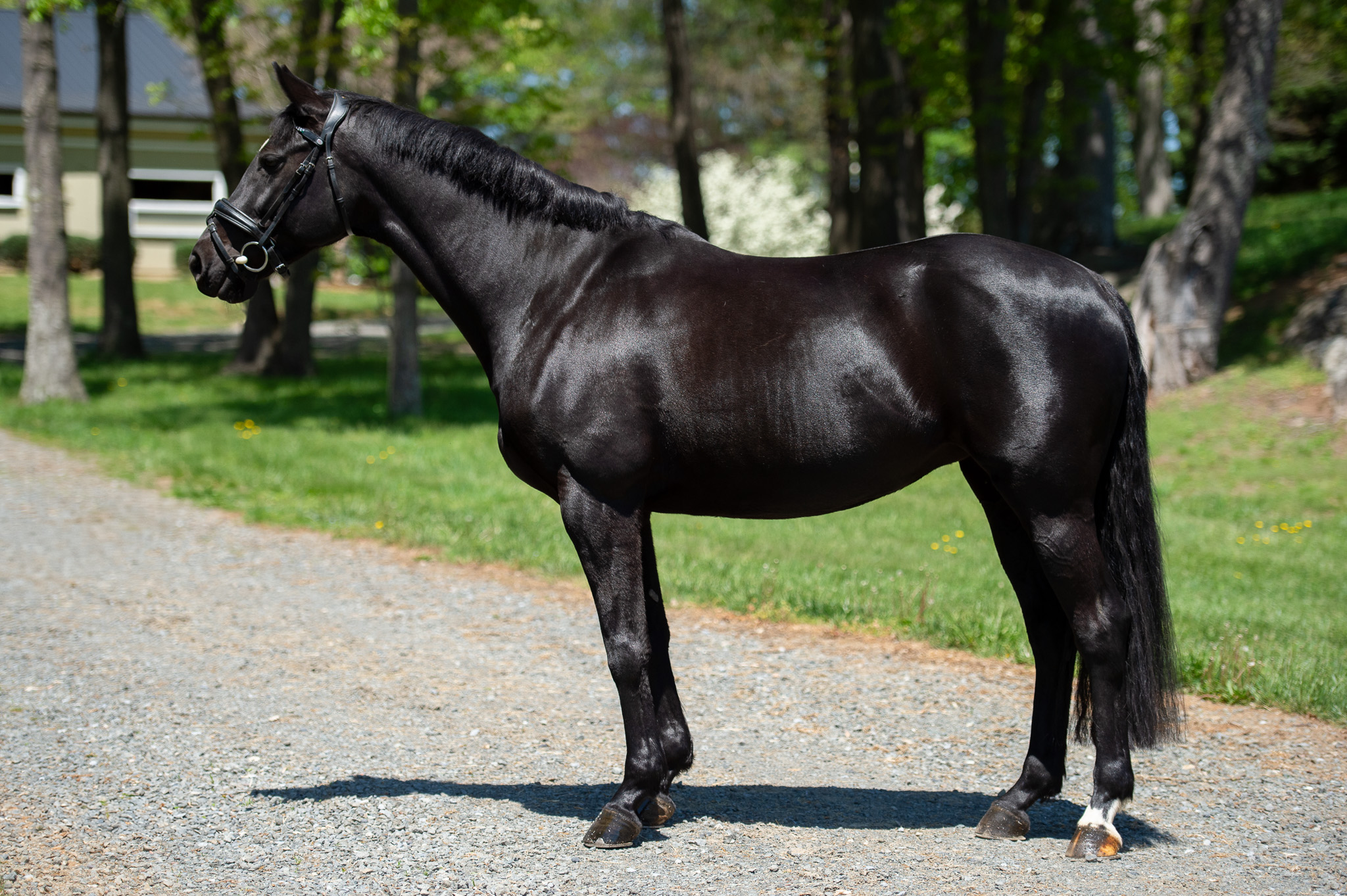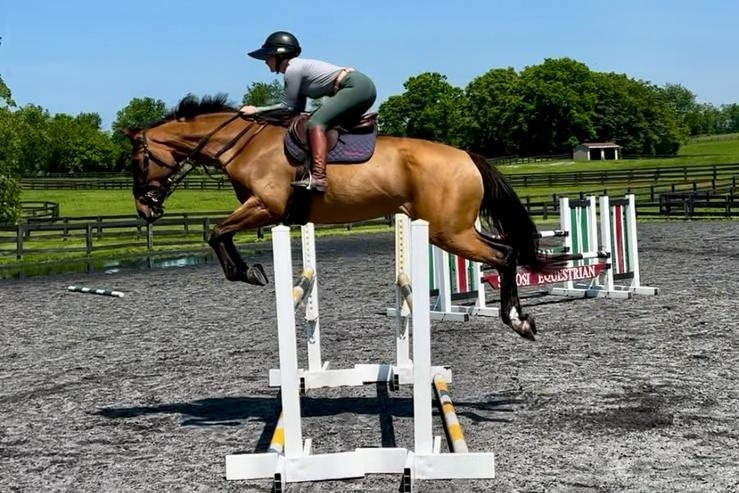Many thanks to Colleen Hofstetter for sending us this article, a fantastic look at upper level ownership via Tim and Cheryl Holekamp. Much has been discussed about the US Olympic Eventing results, and perhaps syndicate ownership is one thing to consider as we move forward. Colleen has penned a few pieces for EN before, and we welcome her contributions. If you have something to share, send it to [email protected]. Thanks for reading!
———-
OWNING OTIS
An Olympic Syndication
by Colleen Hofstetter
Four more years will saunter by until we once again sit glued to our electronics – cyberly waving our red, white, and blue, and looking over our shoulders all day long to be sure the co-workers aren’t secretly tracking our lack of productivity. While for most of us that is all the effort we were able to put into the Games, for others the effort was exponential in form while still being euphoric, heartbreaking, breathtaking, and filled with every emotion known on God’s green earth! We have heard from many of the riders and grooms but one group not heard from very often………owners! One such set of owners is Tim and Cheryl Holekamp, part of the Otis Barbotiere syndication. Tim and Cheryl are not new to the world of ownership though – in 2000 they imported and have continued to own the venerable Trakahner stallion, Windfall, Olympic team horse from Athens and winner of far too many awards to mention them all here. Needless to say, Tim and Cheryl have been down this road before. This time it is a bit different though as Tim and Cheryl are members of the syndicate that owns Otis, as well as being syndicate members for Neville.
I was able to have a cyber chat with Tim after the Olympics as he and Cheryl continued their vacation in Europe, combining business with pleasure as they checked in on some of their other equine projects in Germany. The 2012 Olympics were the Holekamps’ first time around being part of a syndicate, in contrast to individual owners. Why go the syndication route? The obvious answer is to keep one’s check book from catching on fire at the end of the month! As Tim explained, “The cost of being an owner has soared, both the buy-in and the support costs, making the whole business of owning a non-breeding international event horse out of reach for most individuals, even those who managed it in the past, us included. The current price of promising event horses is nearly double that of our initial cost of Windfall, and when I bought Windfall he was further along the upward pathway than Otis at purchase time. The support costs have also nearly doubled in the last 12 years. There appear to be only a handful of people left with the wallet heft and desire to invest in helping the US Team succeed by individually owning and campaigning a gelding. So, in the absence of a governmental source of funding, the solution more or less HAS to be shared ownership.”
Tim is a founding member of the USEF’s Event Owners Task Force and through this group was instrumental in ironing out the framework of a syndication agreement as set up by Chicago-based lawyer Yvonne Ocrant. The EOTF has pioneered a “balanced” operating agreement for the syndication process, intending to cover all scenarios and special needs of riders and owners. Much more detail can be found on their website http://www.ExperienceEventing.
Of the 5 Olympic Three Day Eventing horses two are listed as being owned by a syndicate: Otis and Mr. Medicott. Ringwood Magister is owned by Jaital Inc, and Mystery Whisper and Twizzel are owned by members of the Wildasin family. However, it is my understanding that the Mr. Medicott syndicate is comprised of only two people, while the Otis syndicate is a group of 10 owners. With that many cooks in the kitchen, how are decisions made? And how are the owner perks shared? When Maui Jim hands out gift certificates at Red Hills, who gets the sunglasses? Now, those questions can seem incredibly picayune, but it leads to bigger questions – let’s face it, to put the time and money into ownership, one has to absolutely love all aspects of the sport, and part of the thrill of ownership is having the inside scoop on Team proceedings and having others acknowledge your ownership contributions and accomplishments.
Tim stated that there is a huge upside to being part of a group of owners, with no reduction in pride of single ownership. “When done right, all owners are made to feel special, via such things as frequent video reports from Boyd, being able to exchange ideas and share the fun with other owners, special owners’ opportunities at big events, and mainly just the absolute fun of being part of an endeavor that is at the highest level of effort – and sometimes WINNING!!! Those of us with a long perspective also find some form of enjoyment even when things don’t go so perfectly. A spun horse is a spun horse and a defeated team, and being part of the drama, the sorrow, the necessary ‘bucking up,’ the congratulating of the foreign winners….all are part of the experience and the journey. As I type this in the lobby of the Greenwich Novotel on August 9, ten feet away from me stands a beautiful young British woman wearing an incredible smile and a gold medal around her neck….Charlotte Dujardin, and she is the epicenter of a crowd of elated congratulators. No kidding, this IS pretty exciting.” Positive and upbeat as always, the Holekamps are total good sports!
A huge thrill for owners is to be right in the thick of it all, especially on cross country day. Getting the backstage passes and accompanying glitz, horsey though it may be, is validation in and of itself. In syndication, the coveted credentials and passes are limited, a necessity all can understand. For the Otis syndicate, the passes were awarded through a single chit by lottery, giving that access to a couple, i.e. a single Owner. Tim and Cheryl didn’t win this particular drawing but having had this experience at Athens, were certainly not put out to have the lottery won by another member of the syndicate. Instead, Tim, along with 55,000 others wandered the XC course and got many memorable pictures of the day: the crowd, the horses, and the beautiful panorama of Greenwich Park. “I wanted one great photo and got it.” Tim stated. “Then I cruised the course. Cheryl found that she could see much more from the TV “feed” in the International Team Tent, which was no tent at all. It was the center hall of the spectacular British National Maritime Museum, a few steps from the venue stadium inside Greenwich Park.” (Sounds like owner perks to me!) Tim went on to say that his favorite part of the day was towards the end of the XC phase. “I was sitting on top of the hill on which the famous Greenwich Observatory sits, late on XC day, seeing the entire venue, the Thames, and a big chunk of London splayed out before me, thinking about the incredible ‘moment’ we were part of here.” Individual owner or syndicate member, sounds like a fantastic way to spend a day!
Tim and Cheryl continue to support the syndication effort. In addition to owning share of Otis and Neville, they also own shares in five year old Komik, their homebred Windfall daughter in training with Allie Slusher (KY). Tim and Cheryl have many irons in the fire in addition to event horses. They have been renowned breeders of Trakehners for many years and recently purchased a just-approved young stallion, Gluecksruf. Cheryl is also a licensed “R” dressage judge (working towards her “S” rating) and YEH judge. Windfall, now 20 years old, is still ridden 4 or 5 days a week by Cheryl, and was a wonderful demo horse at a recent ICP Level III/IV workshop at the Holekamps’ Missouri farm with Don Sachey. Tim stated that Windfall continues to “wow people with his youthful physique, even temperament, and soundness on zero medications……and is still breeding mares – makes for a very happy camper!”
The US Event team’s satisfactory, but not stellar, performance at the Olympics is a clear indication that the future is not as bright as we would like. US riders are not going to have the luxury of the funding the British riders received over the last four years – £13,395,100 to be exact as listed on the UK Sport website. (http://www.uksport.gov.uk/


























